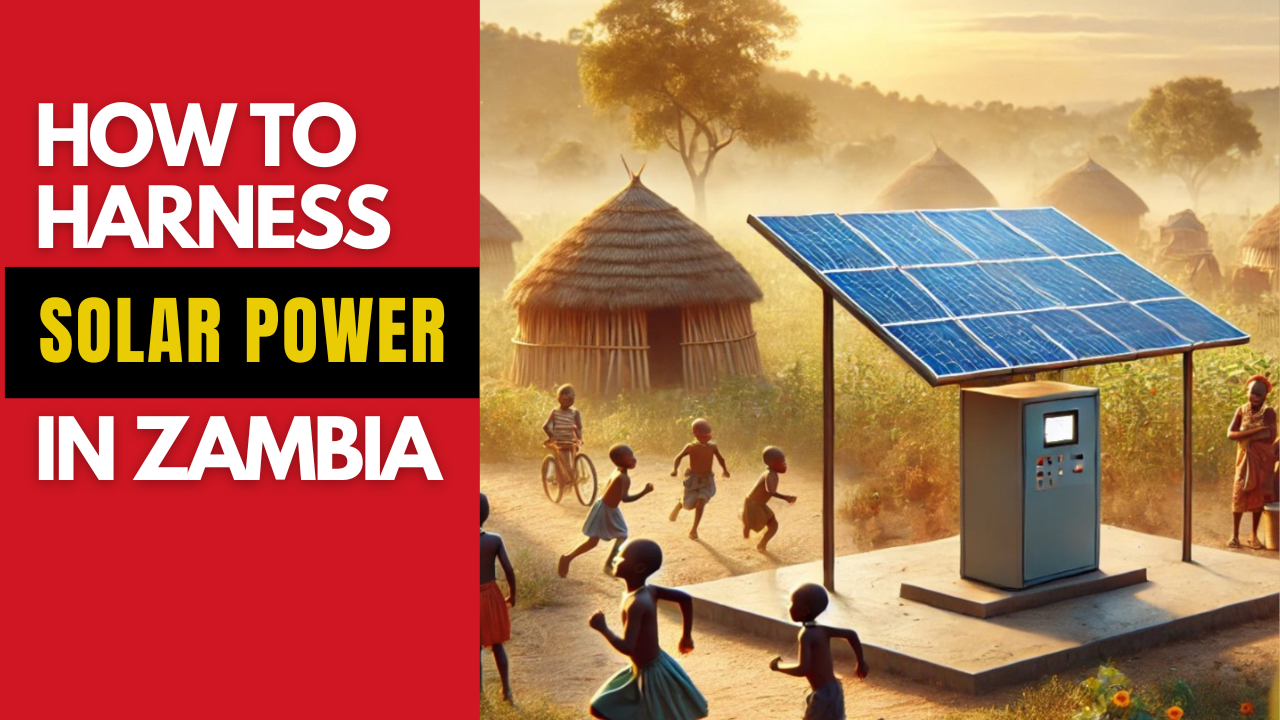Achieving Rural Energy Independence
1. The Current Energy Landscape in Rural Zambia
Zambia is a country rich in natural resources, yet many rural communities continue to face significant challenges due to limited access to reliable electricity. In rural Zambia, over 60% of the population lives without dependable electrical power, relying instead on traditional energy sources such as kerosene lamps, wood, and other biomass fuels. This lack of electricity hinders development, negatively impacting education, healthcare, economic activities, and the environment.

2. The Potential of Solar Energy for Rural Electrification
Given Zambia’s abundant sunlight, solar energy presents a highly promising solution for rural electrification. Solar power systems, including solar home systems, solar water pumps, and solar-powered schools and clinics, can be deployed in off-grid areas, providing a sustainable and reliable source of electricity. This eliminates the need for expensive infrastructure and offers rural communities the opportunity to achieve energy independence.
3. Reducing Reliance on Fossil Fuels with Renewable Energy
Solar energy offers rural Zambia a chance to reduce its reliance on fossil fuels, which are not only costly but also harmful to the environment. By harnessing solar power, communities can shift to a clean and renewable source of energy, helping to mitigate the effects of climate change and decrease energy costs for households and businesses. The transition to solar energy is a crucial step towards sustainable energy solutions in rural Zambia.
4. Improving Quality of Life Through Solar Energy
The introduction of solar power can dramatically improve the quality of life in rural Zambia. Reliable electricity allows children to study at night, clinics to operate essential medical equipment, and small businesses to extend their working hours. Additionally, solar energy reduces health risks associated with indoor air pollution from kerosene lamps and wood stoves, contributing to a healthier living environment.
5. Government and NGO Initiatives Supporting Solar Power
The Zambian government, alongside various non-governmental organizations (NGOs), has recognized the critical role of solar energy in promoting rural development. Programs such as the Rural Electrification Authority’s (REA) Solar Mini-Grid initiative and the Solar Energy for Rural Development Project are dedicated to increasing access to solar power in rural areas. These initiatives provide training, support, and the necessary infrastructure for communities to adopt and maintain solar technology.
6. Overcoming Challenges to Solar Energy Adoption in Zambia
Despite the vast potential of solar energy in Zambia, several challenges hinder its widespread adoption in rural areas. High initial costs, lack of technical expertise, and limited awareness of solar technology are significant barriers. However, with government support, innovative financing models, and active community engagement, these obstacles can be addressed. By overcoming these challenges, Zambia can fully leverage the benefits of solar energy for sustainable rural development.
Conclusion
Harnessing solar power in Zambia is not just an opportunity for rural communities to achieve energy independence—it is essential for the country’s sustainable development. Investing in solar energy allows Zambia to provide clean, reliable power to its rural population, reduce its carbon footprint, and improve the quality of life for millions of people. As the global shift towards sustainability gains momentum, solar energy offers Zambia a clear pathway to lead the way in rural electrification and set a powerful example for other nations.


